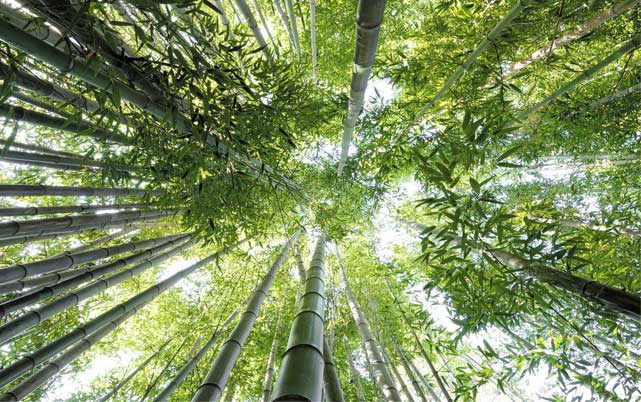Bamboo is a sustainable flooring choice. It is a popular alternative to hardwood flooring as the bamboo grows quickly and does not need to be replanted like hardwood trees. If you are looking for an eco-friendly and sustainable flooring choice, then bamboo is definitely for you.
How is bamboo flooring sustainable?
Bamboo is a rapid growing grass that is native to China. It can reach maturity and be harvested in as little as 5 years. This is in comparison to hardwood trees that can take decades to be fully grown. Bamboo forests are usually harvested by hand, which ensures that the root of the grass does not get damaged. The plant itself is re-generating, similar to our grass. It can be cut and simply continues to grow, without the need for it to be replanted. The bamboo forest is usually coded into sections, with a staggered growing pattern so that not all of it is harvested at once. This means that a bamboo forest continues to grow abundant crops year on year so that the farmers always have a healthy and plentiful yield.
How is it eco-friendly?
• Bamboo is a fast-growing grass. It reaches maturity and can be harvested every five years, compared to hardwood trees which can take over two decades to reach maturity.
• The root of the bamboo plant has regenerating properties. This means that it does not need to be re-planted after a harvest. It will simply continue to grow from the existing root.
• Most bamboo forests are harvested by hand. This is so that there is minimal damage and disruption to the surrounding area, including wildlife and local villages.
• Finally, China has the perfect conditions for bamboo to grow quickly and naturally. There is no need for fertiliser or an irrigation system to be used in the bamboo forests.








